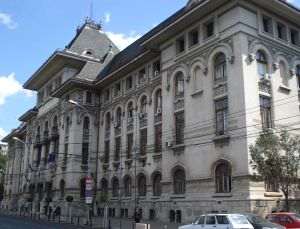A report published in France signals worrying regressions in terms of academic freedom worldwide, according to the AFP agency. The document, prepared by Stephanie Balme, director of the Center for International Research (CERI) at Sciences Po, for France Universites, shows that Romania is among the nine member states of the European Union that have a below-average level of academic freedom, a fact that "requires special vigilance”. The report attributes these slippages to "the influence of authoritarian regimes and/or contemporary populist movements”, which target science and the autonomy of higher education institutions.
• "Political hostilities” and pressures on universities
Stephanie Balme notes that the phenomenon is not limited to autocratic regimes. "In the United States, all universities - prestigious or modest, private or public - are affected by a climate of political hostility”, the report states.
In the European Union, Austria, Malta, Romania, Croatia, Bulgaria, the Netherlands, Greece, Poland and Hungary are mentioned as countries with below-average academic freedom. The author emphasizes that these countries need "increased attention from the authorities and the international academic community.” The report also provides concrete examples. In Poland, several researchers studying the Holocaust were prosecuted for works that documented the complicity of segments of the Polish population in the persecution of Jews during World War II. In France, academic freedom is considered "significantly lagging behind,” especially from a legal and political point of view. This contrasts with other areas in which the French state is a pioneer - such as freedom of the press or economic and social rights.
• Fragility of the academic environment
The document also emphasizes the role of cultural and ideological debates in weakening academic freedom. "The increase in criticism of so-called "wokism' in European universities, both from the media and from the political sphere, has contributed to the weakening of academic freedom,” the report states. It mentions accusations of "Islamo-leftism' brought against some academics in France, as well as controversies regarding pro-Palestinian mobilizations at Sciences Po, considered by the authorities as examples of political pressure on the academic environment. Some French institutions, such as INRAE (National Institute for Agricultural, Food and Environmental Research) and INSERM (National Institute for Health and Medical Research), were among the first to react to the offensive against universities. The report recalls that this offensive was initiated in the United States, under the administration of Donald Trump, and spread to Europe through similar populist discourses. To counter this trend, France Universites proposes a series of concrete measures: reaffirming academic freedom as a fundamental principle of law, developing a common culture of academic freedom in society, promoting a "European science diplomacy” to protect research from political interference.
The report emphasizes that academic freedom is an essential indicator of the health of democracy. Countries like Romania, which are "below average” in this regard, are warned that ideological slippages and political interference can affect not only the quality of education, but also the scientific and international credibility of universities.
















































